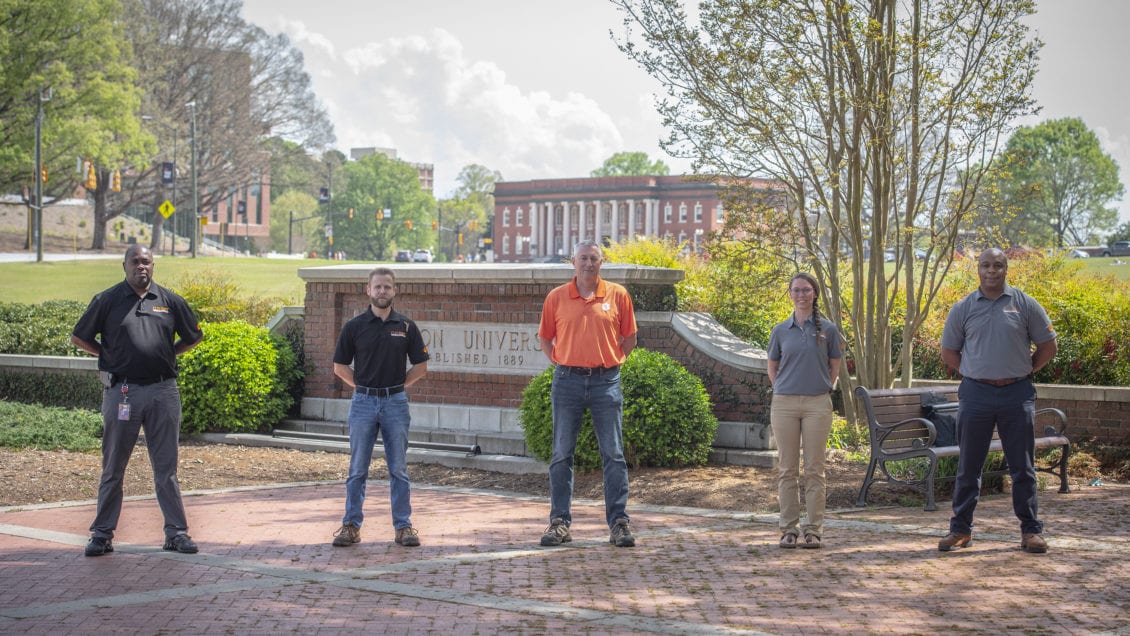Veterans working at Clemson contribute to the “one team, one fight” mindset of safely working and learning together, United as Tigers.
Clemson’s response to COVID-19 has required quick action against the threat of the virus, a thorough and ongoing mitigation strategy, and unified, agile processes to address frequently changing circumstances and maintain critical operations throughout the pandemic. Military veterans in Clemson’s workforce, like director of emergency management Sarah Custer, have been a source of stability in the face of change and uncertainty.
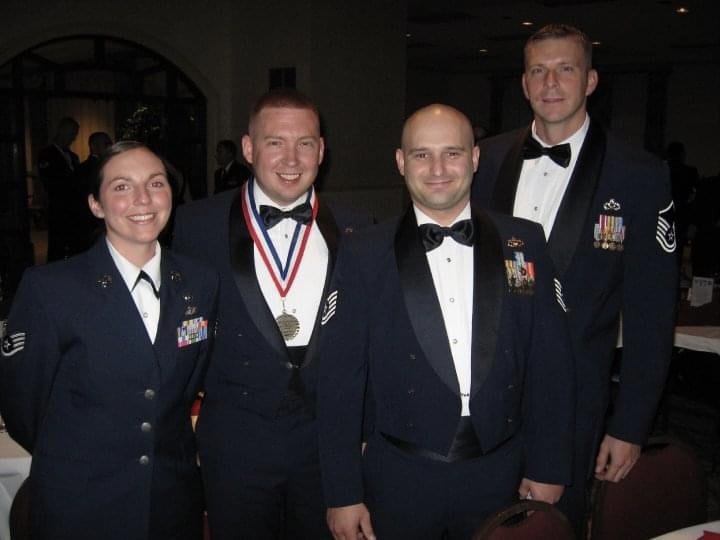
“WHEN THE PANDEMIC HIT, CLEMSON HAD ONE MISSION AND THAT WAS TO PROTECT THE SAFETY AND HEALTH OF OUR PEOPLE.
THAT FELT VERY MUCH LIKE MY TIME IN THE MILITARY.”
– Sarah Custer
Sarah Custer (left)
Clemson has earned a reputation for leveraging the leadership skills of service members, most recently gaining national recognition as a Military Friendly® Employer.
Members of Clemson’s leadership, including two veterans who served in the U.S. Navy, Vice President and Chief of Staff Max Allen (below left) and Executive Vice President, Finance and Operations Tony Wagner (below right) have helped guide the University through this tumultuous time.


Earlier this year, Clemson’s Office of Human Resources implemented hiring process updates related to the South Carolina Department of Administration’s announcement of “Veterans Preference” for state employment. HR now notifies hiring managers if a qualifying veteran applies for a full-time equivalent (FTE) position they’ve posted, and recruiters will assist throughout the hiring process to ensure all applicable aspects of Veterans Preference are met.
Veterans Preference aims to assist veterans in transitioning to civilian life after concluding their military service, but military veterans in Clemson’s workforce have assisted in significant ways throughout the University’s own period of transition over the past year.
As a staff sergeant in the U.S. Air Force, Custer worked on emergency management teams responsible for identifying and preparing for threats at deployed and home station locations. Through her work with Clemson’s Emergency Operations Center (EOC), Custer has been a driving force behind the University’s quick and comprehensive response to COVID-19. She credits her military experience for “instilling a ‘one team, one fight’ mindset which is absolutely crucial to our work in battling the COVID-19 pandemic.”
Working closely with Custer and the EOC is Clemson’s Occupational and Environmental Safety (OES) team led by executive director Jim Grieger. OES provides comprehensive health, safety and environmental compliance services to all Clemson units, facilities and operations both on main campus and across the state. In addition to maintaining regular services like hazardous waste pickup and safety training during modified operations, OES has provided many additional services to support the University’s COVID-19 pandemic response, including the following:
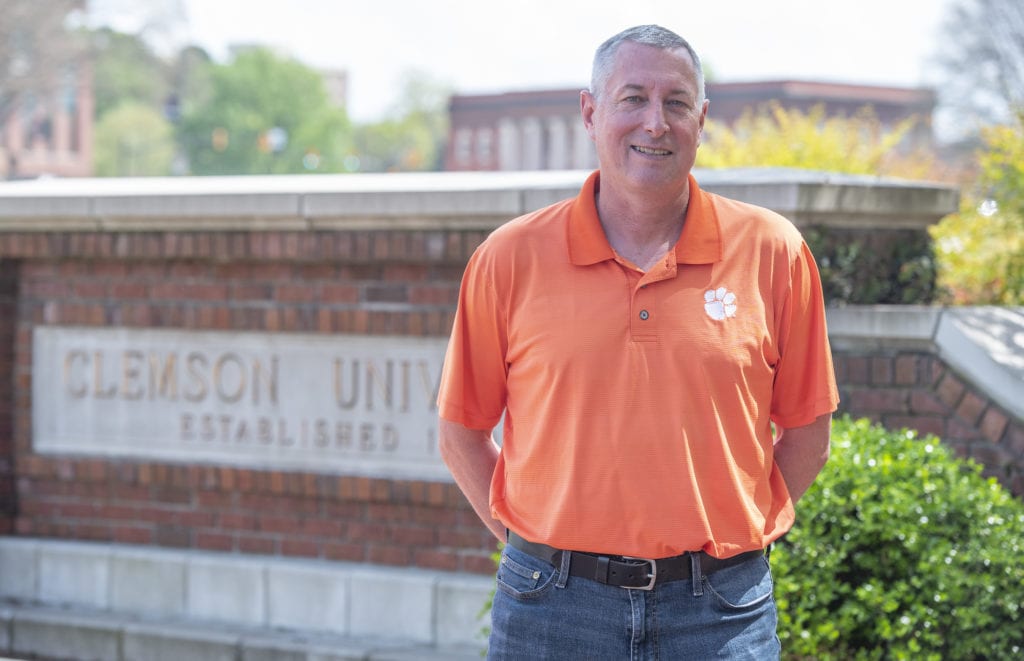
- Conducting N95 respirator fit testing for healthcare workers, emergency responders, and local police.
- Partnering with University Facilities to develop cleaning and disinfection protocols for campus facilities.
- Reviewing and approving sanitizing and disinfecting products for Procurement’s online PPE store.
- Helping establish safety plans and protocols for Housing and Dining, Parking and Transportation Services, research facilities, and athletic events.
- Providing biological waste pickup services and safety support to the COVID-19 testing lab on campus.
Grieger credits the success of OES’s operations to the hard work and “service oriented, ‘can do’ attitude” of his staff, which includes four military veterans representing four branches of the U.S. Armed Forces. “With COVID-19,” says Grieger, “situations and needs changed frequently, and requests came often. I believe the military experience of these staff brought the ability to change directions and priorities often and have allowed us to effectively collaborate with units across the University to support Clemson throughout the pandemic.”
The veterans on the OES team offered insights into how military experience informs their approach to their work at Clemson.
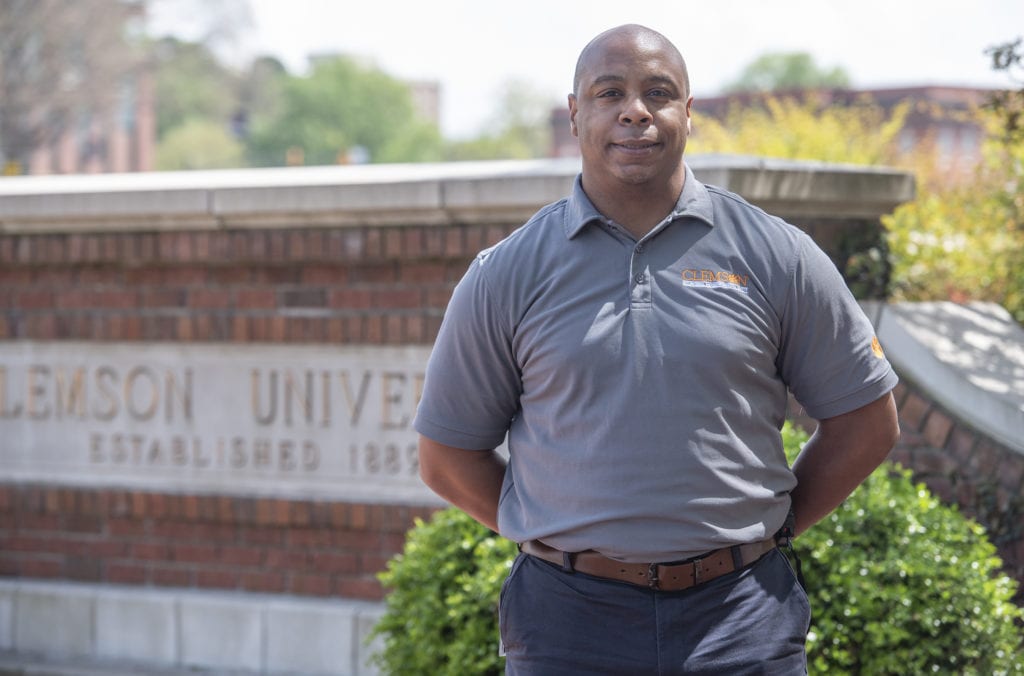
Jeff Anthony – Occupational Safety Manager (Air Force and Army Reserve)
“In the military, we are trained to complete our task and missions in the face of change,” says Jeff Anthony, an Air Force veteran with 23 years of service. Anthony’s resilience and adaptability—qualities he says he developed while serving—helped him navigate the challenges of educating and training employees on COVID-19 safety guidance that was frequently changing. As an occupational safety manager at Clemson, Anthony relies on the analytical skills he picked up in the Air Force through “observing how all the different moving parts of an organization work together to accomplish a mission.”
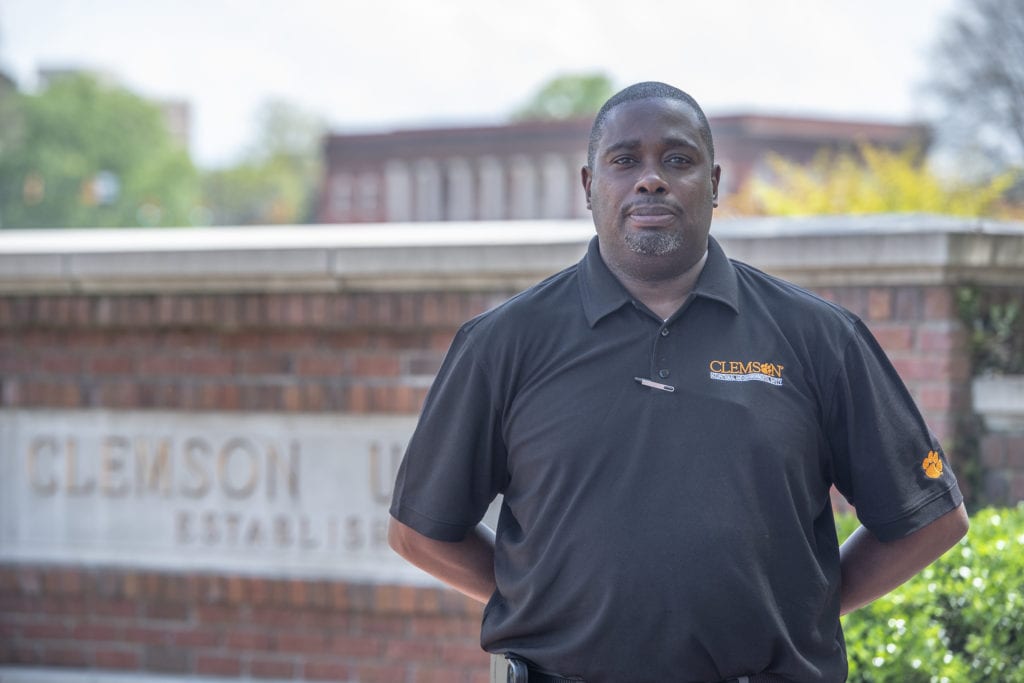
Antonio Craig Sr. – Hazardous Material Specialist (Marine Corps)
Antonio Craig Sr. notes “team-building and discipline” as key takeaways from his service as a field radio operator in the Marine Corps, where he supported different units with maintaining radio, antennas and other gear for communications. Craig Sr. brings this same level of care and service to the areas he supports as the hazardous materials specialist assisting with the daily implementation of Clemson’s Hazardous Materials Program.
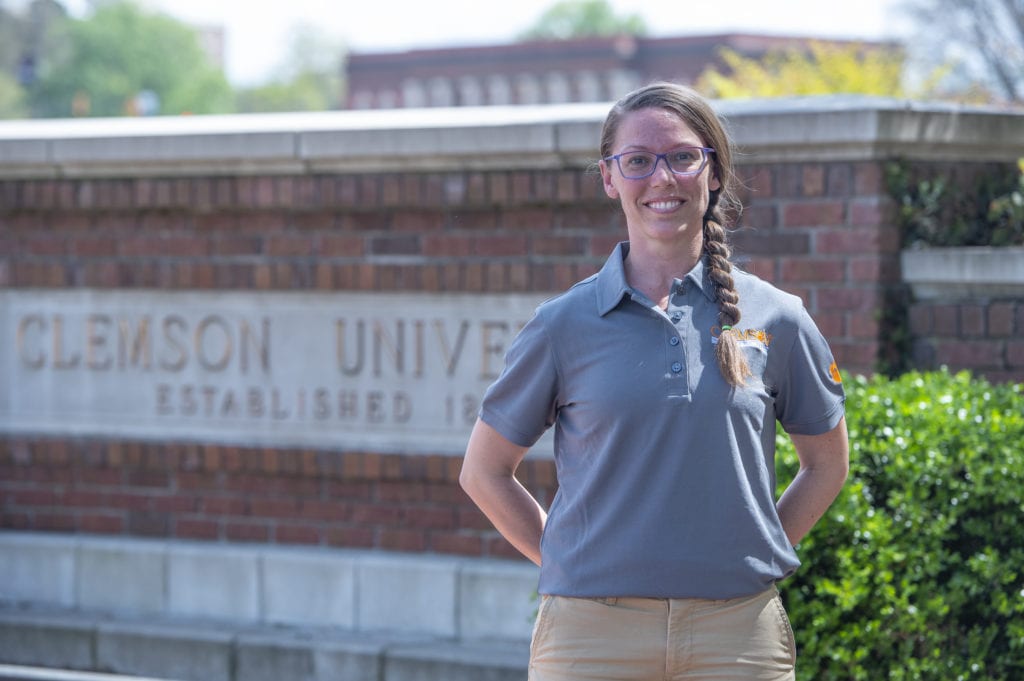
Dawn Montgomery, Ph.D. – Assistant Radiation Safety Officer (Navy)
Before earning her doctorate in Environmental Engineering and Earth Sciences from Clemson, Dawn Montgomery served as an instructor at the Naval Nuclear Power Training Command in Goose Creek, S.C. Montgomery recognizes a direct relationship between her work as an instructor in the Navy and the training she providers to users of radioactive material in her role as assistant radiation safety officer at Clemson. Montgomery also notes, “Most people who have spent time in the military become very familiar with the necessity of following procedures and checklists as well as the importance of completing proper training and qualifications associated with their jobs. These concepts are quite important when dealing with the safe use of radiation and radioactive materials.”
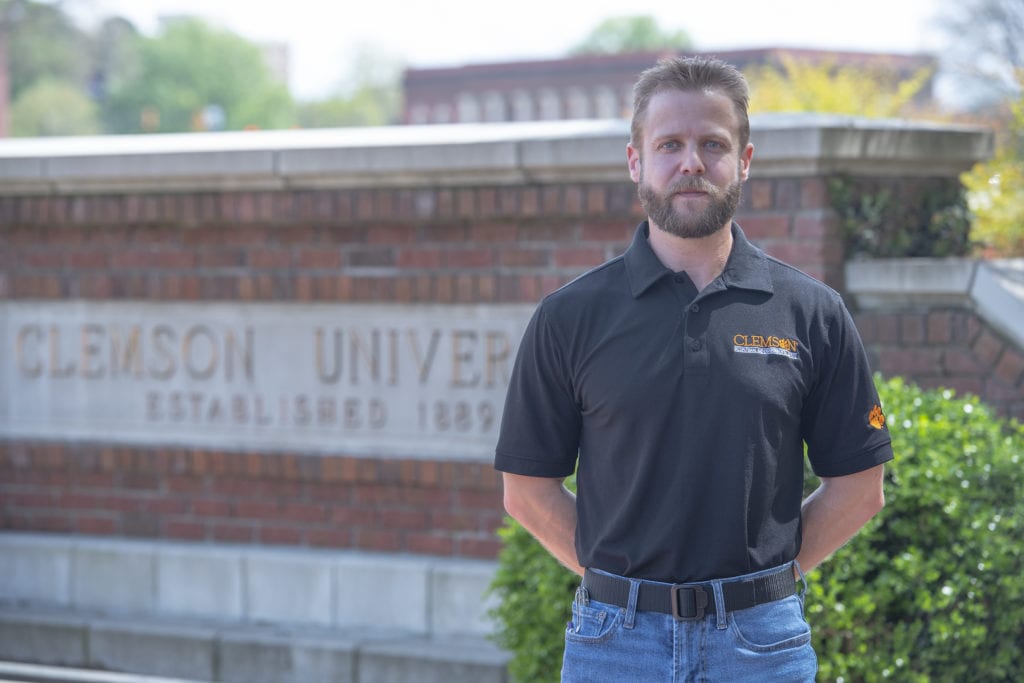
Christopher Weber, Ph.D. – Chemical and Laboratory Safety Manager (Marine Corps)
“My primary responsibility is to assist laboratory researchers and faculty in performing safe, effective, and efficient scientific research,” says chemical and laboratory safety manager Christopher Weber. Throughout the COVID-19 pandemic Weber has helped to ensure Clemson’s critical scientific research could continue in a safe manner. Weber credits his service as a mortarman in the Marine Corps for equipping him with a mindset that “improvisation and adaptation can overcome everchanging circumstances and conditions in order to accomplish the task at hand.” He adds, “This mindset was essential during the early months of the pandemic when information was scarce and guidance constantly changing.” There has been no shortage of challenges since COVID-19 came to Clemson, but the University’s workforce has remained adaptable, resilient and united.
One Team, One Fight
Adaptability, resilience and teamwork are skills many military members bring to civilian work after their military service concludes. Veterans like those featured in this article contribute to the “one team, one fight” mindset to Clemson’s mission of safely working and learning together, United as Tigers.
Get in touch and we will connect you with the author or another expert.
Or email us at news@clemson.edu

